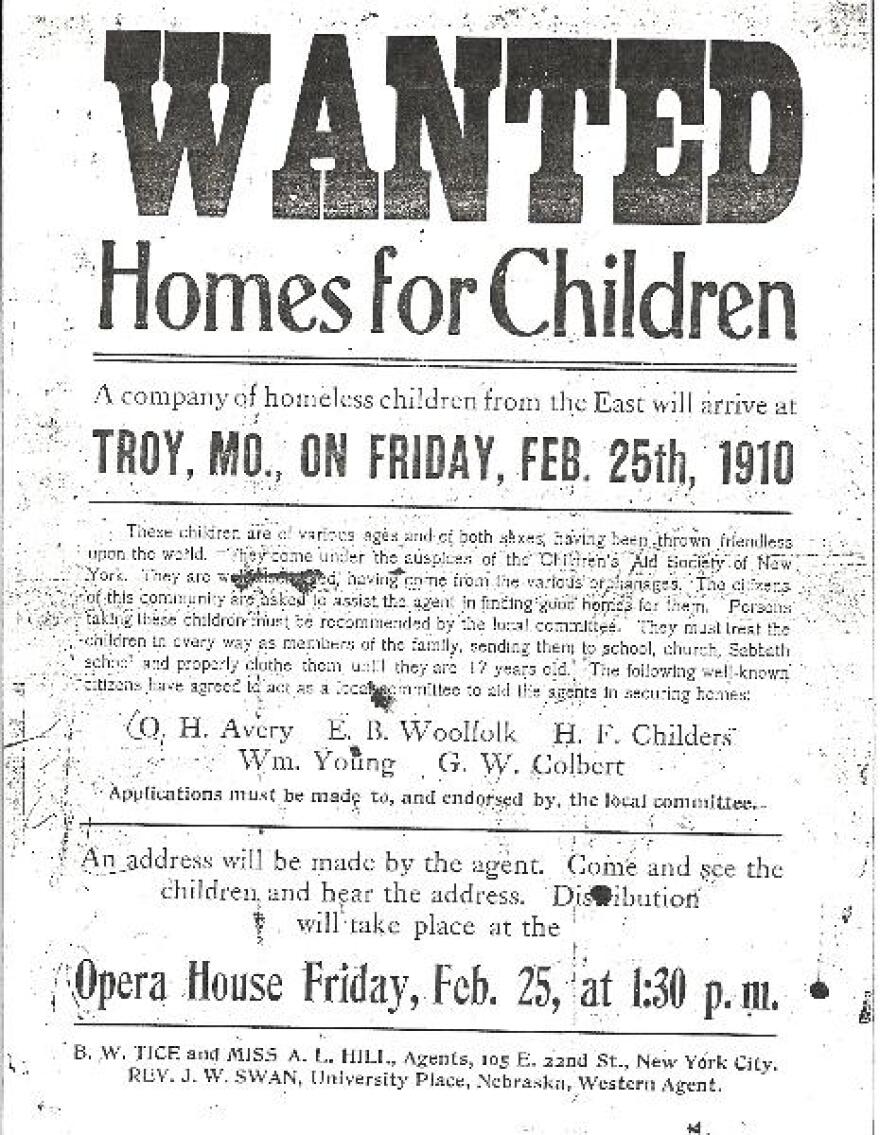Although orphan trains operated in the U.S. for decades, the legacy of the trains has gone relatively unnoticed. Over the course of 75 years, hundreds of thousands of children from cities like New York and Boston were shuttled onto trains headed West in search of a new home. But not much is known about these children, or what happened to them after they left the trains. A new play at UWM is hoping to change that.
Orphan Traingives voice to some of the people involved with the Orphan Train Movement. It’s an inside look at the lives of children on the orphan train, based on first-person accounts from that time period.
“There’s thousands and thousands and thousands of stories out there,” says Robin Mello, the director of Orphan Train and the lead playwright. “Really just picking some that either rise to the top because they seem to be completely like a thousand other stories. Or something that is very unusual but gives you a great snapshot of what it might’ve been like to be on those trains.”

The play was the culmination of a year spent reading and looking at the oral histories of people involved with the movement. Students were also asked to do their own research into the historical figures represented in the play.
It was a new experience for many of the students, like Eleanor Wenker and Karah Minelli, who were unfamiliar with the historical significance of the Orphan Train Movement.
Through research, the actors were able to get a better understanding of not only the orphans, but also the people who organized the trains. Mello says she was surprised by how much she ended up respecting the organizers, whose work has had a profound impact on the modern foster care system and our perceptions of adoption.
“The people who sent those children on trains were maverick, they were in a sense almost ahead of their time even though they made grievous mistake,” she says. “They tried very hard to do the right thing because they were faced with a huge problem of human suffering. And they asked those marvelous questions, you know, ‘What do we do?’”
Still, the true legacy of the Orphan Train Movement is a bit muddled. Some have argued that the orphan trains essentially made children into indentured servants on farms in the west. Others contend that the children riding those trains would have otherwise been lost in the fray of the increasingly industrialized cities of the east.
“It’s complex,” says Mello. “I’m not trying to say that it is wrong or right but it is an interesting piece of history that I don’t think we’ve grappled with or had a conversation with in a deep way yet.”
Orphan Train opens at UWM's Kenilworth 508 April 6, and runs through April 10.







